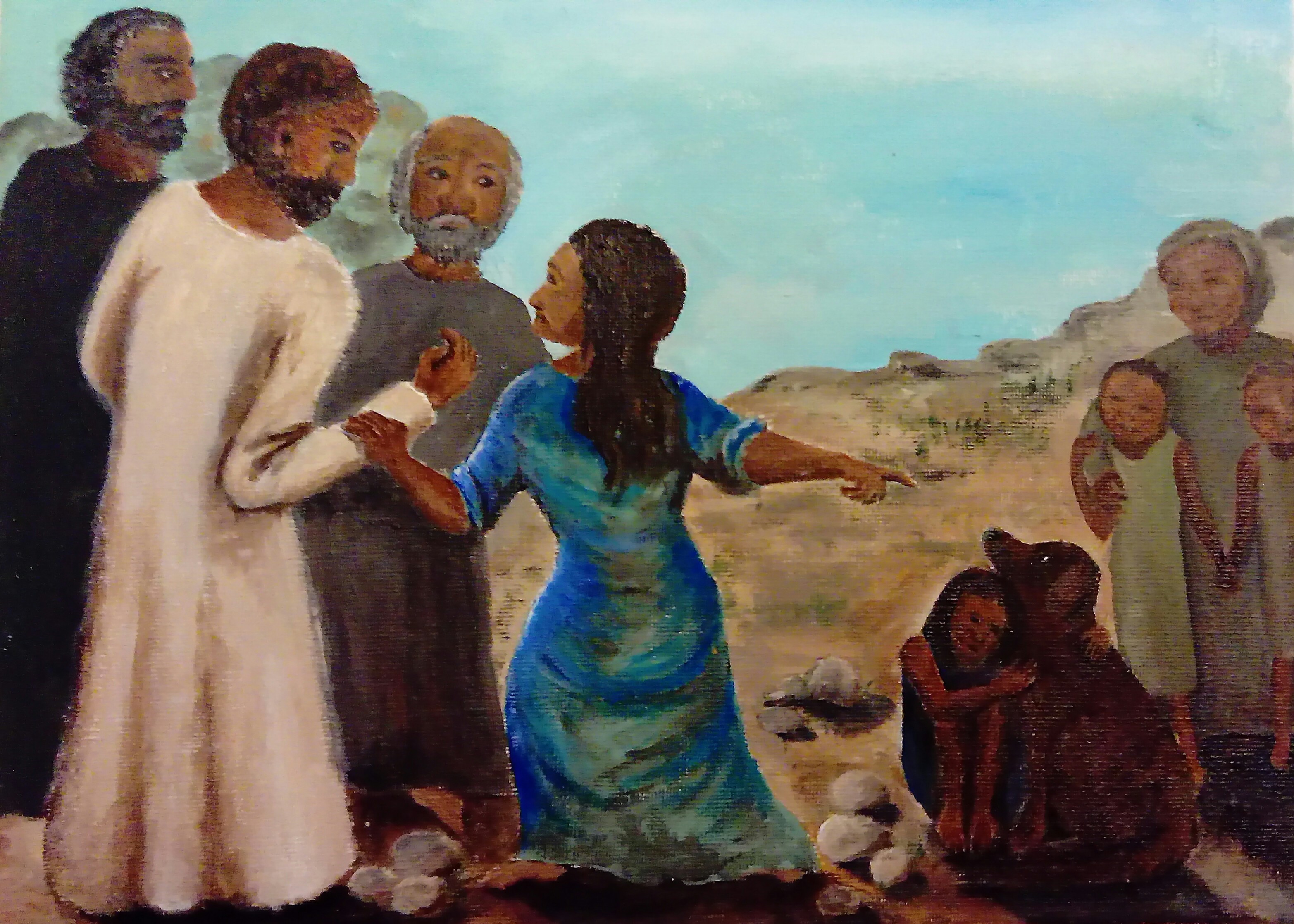
This story in Matthew 15:21-28 is unique in the gospels and timely for us. Jesus is wrestling with his own prejudices and a blinkered view of his mission as he encounters a woman who will not let him off the hook because she is fighting for the life of her child. She challenges the Son of David to shake off his prejudice and expand his sense of his mission to include her and her child.
It’s surprising that this kind of story was even retained in scripture because it’s not flattering to Jesus – he’s no hero here. But the gospel writers are not telling the story of a hero; they are telling the story of a human one who wrestles with his own faithfulness, and in that wrestling proves he is also divine. The fact that the author of Matthew records this unlikely story, which is only in Matthew, makes it all the more credible and important for us to hear.
Our own lives and context are full of learned prejudice and pinched views of human life and society. As a nation and individuals we are today wrestling painfully with these prejudices and trying to purge and heal them. Reading this story in that light, a few things are helpful to highlight. First it’s important to understand the “coded context” of this story. Jesus has traveled into the country of “Tyre and Sidon,” which were Phoenician cities north of Israel. So geographically they were in a foreign land, but more importantly these cities are biblical code words for “pagan.”
While he was there, a “Canaanite woman” comes to meet him and cries for mercy. It’s important to know that Canaanite is one of the most commonly used ethnic terms in scripture, and it’s basically a catch-all word used to describe the various indigenous peoples who were living in the land where the Hebrews settled/conquered after the Exodus. Like most catch-all ethnic words, it’s not value neutral. It carries overtones of people, culture, and religion that are threatening to Israel. It biblical terminology, it’s practically a slur.
So Jesus is in a foreign land that he has been taught to see as pagan, and he is approached by a woman whom he has been taught represents all that is dangerous to the faith of Israel: worship of false idols, inferior culture and law, and a claim on land that belongs to Israel. She is begging him for mercy.
The second thing that is important to highlight in reading this story is that Jesus wrestles with her request. Some commentators, in an effort to protect the divinity of Jesus, suggest that Jesus might have playing “hard to get” for the benefit of others. He was going to show mercy all along, but he needed to make a point to the disciples or draw out the strength of the woman’s faith. But to me that stretches too hard to protect the divinity of Jesus. The far simpler interpretation is that Jesus is really wrestling.
He is unbelievably silent before her cry for mercy, even as the disciples are asking him to get rid of her. And when he does speak, it’s not clear to whom he is speaking. Perhaps to the disciples, perhaps to her, perhaps to himself. I think he’s speaking to himself and describing out loud his inherited prejudices and beliefs about what it means for him to be a messiah. What he says is essentially, “I’m not here for you. You’re not my people — you’re not a Hebrew.” Wrong race, wrong religion, wrong address. He even describes her as a “house dog.” He means to say, you may live in my house (the land), but you’re not my child.
Jesus is giving voice to an attitude that if we encountered it anywhere besides in scripture we would say is racist, nationalist, prejudiced, and even cruel. She is asking him to save her daughter, and he is wrestling because she is the wrong ethnicity!
The good news in this text is that Jesus gets there, thank God, but how he gets there is interesting. The Canaanite woman has more faith in Jesus than he has in himself. She has a more keen sense of God’s compassionate mercy toward those who cry out (a theme that runs from Exodus on), than Jesus has. She turns his words against him and says, “even the house dogs get to eat the scraps that fall from the Master’s table.” And that’s when Jesus gets there, and he calls her faith terrific and her daughter was healed.
You might say that Jesus has his own “come to Jesus” moment. He’s converted to a deeper understanding of God’s compassionate love, and to a wider sense of his own mission in the world, by a Canaanite woman.
Perhaps that’s why this story was kept by Matthew. By the time Matthew wrote (~70 AD), the gospel had gone out to Jew and Gentile, and the Spirit had been poured onto Hebrew and pagan alike. The kingdom of God, dawning in Jesus, was wide and diverse, drawing people from North, South, East and West, to sit at table. The emerging church was a multi-racial, multi-ethnic community, a place where old prejudices were being thrown away and the grace of God was making a new family.
Thanks be to God for the determined faith of a Canaanite woman! May her witness challenge us as it challenged Jesus, to deepen our compassion for the other and expand our vision of the kingdom of God.
